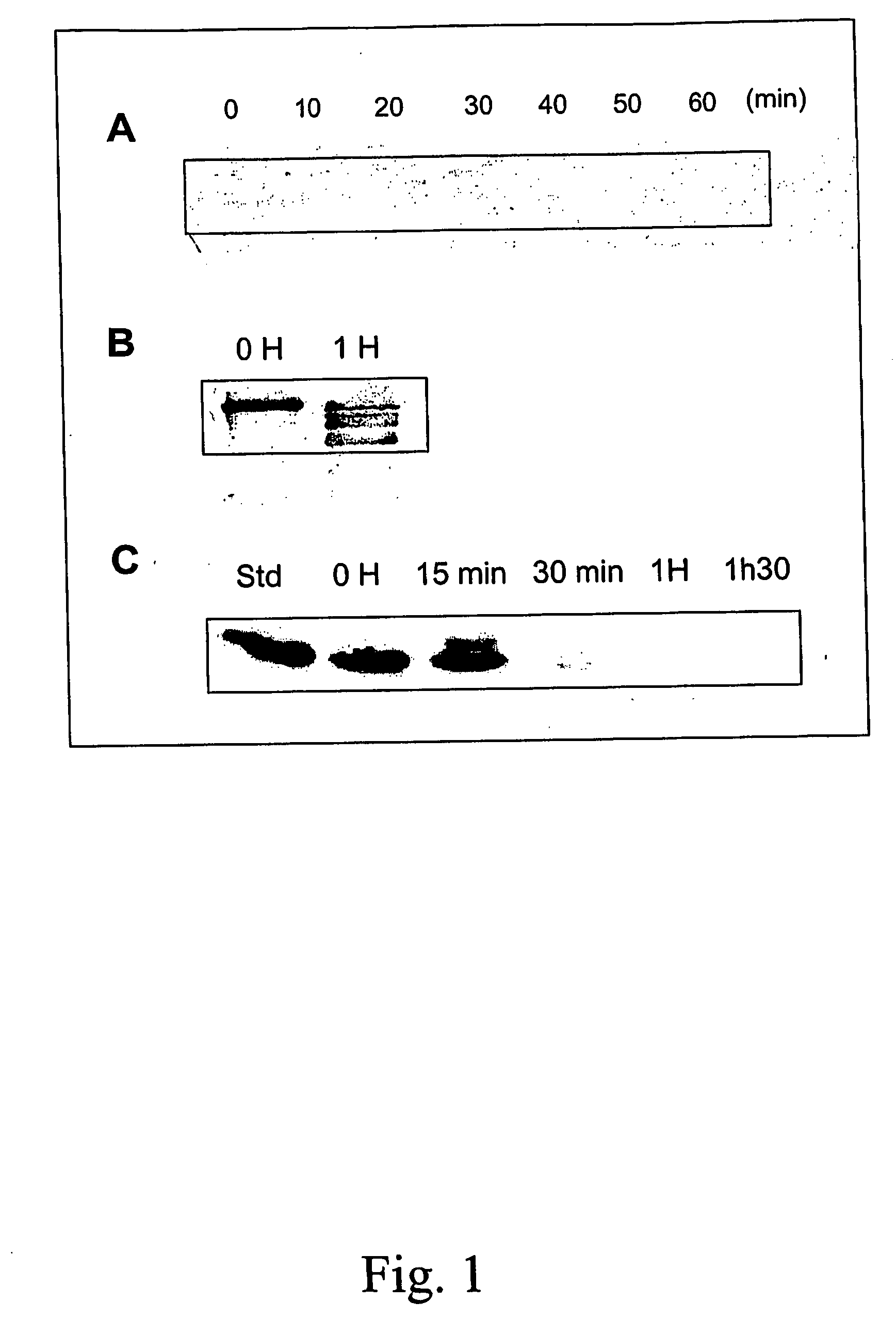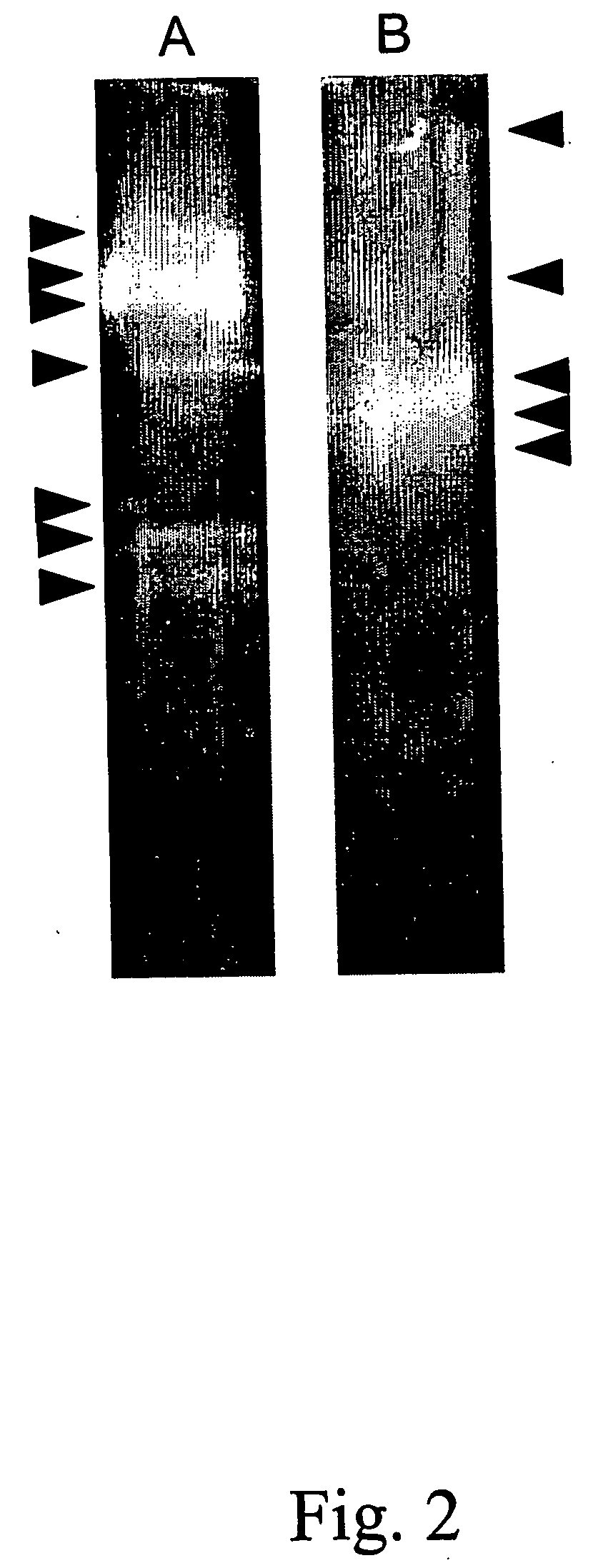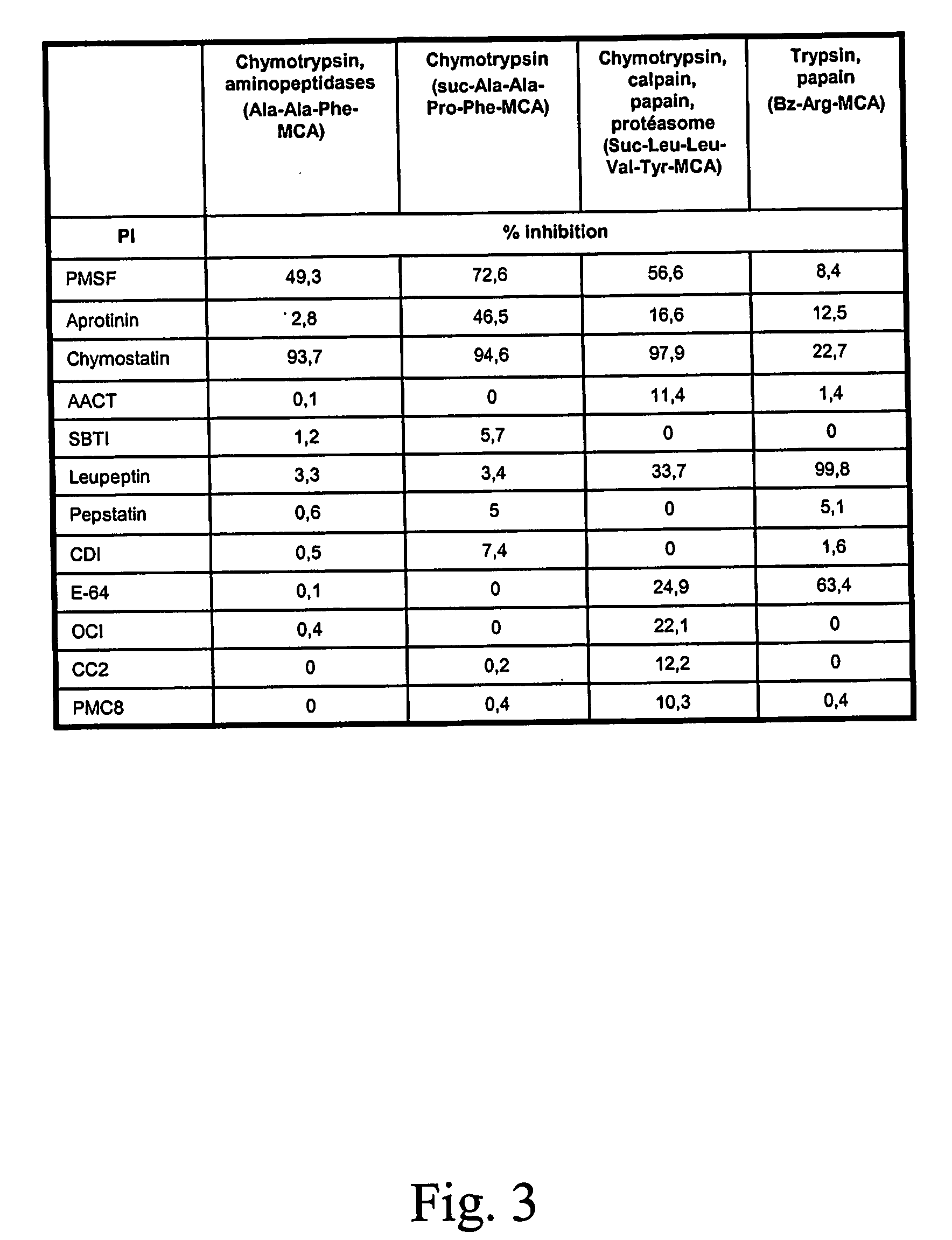Method for enhancing yield of recombinant protein production from plants
a technology of recombinant protein and recombinant protein, which is applied in the field of enhancing the yield of recombinant protein produced in genetically transformed plants, can solve the problems of low level of recombinant protein recovery, low yield, and often impaired recombinant protein expression, and achieve the effect of inhibiting the expression of a proteas
- Summary
- Abstract
- Description
- Claims
- Application Information
AI Technical Summary
Benefits of technology
Problems solved by technology
Method used
Image
Examples
examples
[0081] The present invention will be more readily understood by referring to the following examples, that are given to illustrate the invention rather than to limit its scope.
example i
Degradation of NPTII Protein by Plant Leaf Proteases
Materials and Methods
[0082] The hypothesis that degradation of specific recombinant protein can be decreased by the expression of a exogenous protease inhibitor was tested using a simple model. The neomycin phosphotransferase (NPTII) protein which is often use as selectable marker of transgenic plants was expressed in potato without the presence of any protease inhibitor protein and the degradation of the NPTII protein was monitored. In order to mimic the situation where a protease inhibitor gene would be present and expressed on the same construct as the nptII gene, a protease inhibitor gene, the tomato cathepsin-D inhibitor CDI (Werner et al, 1993, Plant Physioly 103:1473), was introduced beside the NPTII gene but without any promoter hence prohibiting CDI gene expression.
[0083] The tomato CDI-encoding DNA sequence was isolated from the expression vector pGEX-3X / CDI (Brunelle et al. 1999, Arch. Insect Biochem Physiol. 42:88-9...
example ii
Degradation of Clinically-Useful Proteins by Plant Leaf Proteases
Materials and Methods
[0085] Other recombinant proteins may be targeted for degradation by proteolysis during the extraction procedure. In particular, this degradation may have a very negative effect for the recovery of plant made pharmaceuticals. To illustrate that this process which occurs in potato can also be found in other plants, the degradation of clinically useful proteins was monitored in leaf extracts of alfalfa. This experiment involved the addition of commercially available proteins to alfalfa leaf extract in vitro and the monitoring of the degradation of these proteins by Western analysis over a time period. In a first experiment (FIG. 1B), in vitro degradation of human fibronectin in the presence of alfalfa proteases was monitored by mixing 5 μl of alfalfa (cultivar Saranac) leaf extract prepared in 50 mM Tris-HCl pH 7.0 (1:3 w / v) containing 10 mM β-mercaptoetlianol, with 2 μg of fibronectin (Boehringer...
PUM
| Property | Measurement | Unit |
|---|---|---|
| Sensitivity | aaaaa | aaaaa |
Abstract
Description
Claims
Application Information
 Login to View More
Login to View More - R&D
- Intellectual Property
- Life Sciences
- Materials
- Tech Scout
- Unparalleled Data Quality
- Higher Quality Content
- 60% Fewer Hallucinations
Browse by: Latest US Patents, China's latest patents, Technical Efficacy Thesaurus, Application Domain, Technology Topic, Popular Technical Reports.
© 2025 PatSnap. All rights reserved.Legal|Privacy policy|Modern Slavery Act Transparency Statement|Sitemap|About US| Contact US: help@patsnap.com



